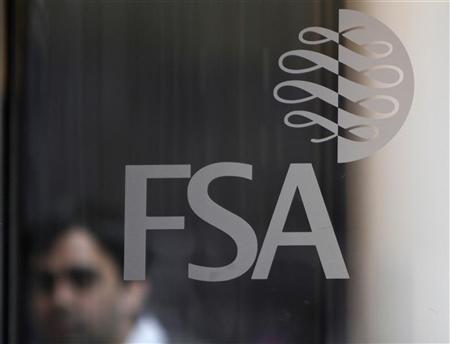
US regulator Commodity Futures Trading Commission said the way that the key LIBOR interest rate is set in the UK is still not clean and free of fraud.
“We have a lot more work to do,” said Gary Gensler, chairman of the Commodity Futures Trading Commission.
Gary Gensler suggested that the rate was often “completely made up”.
A number of banks have been fined hundreds of millions of pounds for rigging the lending rate.
Gary Gensler is in London to meet officials at the Financial Services Authority (FSA), the City watchdog.
LIBOR (London Interbank Offered Rate), which is set in London, is meant to reflect the average rate that banks pay to lend to each other and is used to benchmark everything from car loans and mortgages to complex financial transactions around the world.
Speaking of the scandal, Gary Gensler spoke of “pervasive rigging” and said authorities could not guarantee the rate is fraud-free, but refused to criticize the FSA or suggest that setting the rate should be moved to the US.
He also labeled the FSA a “terrific partner”, as the FSA defended itself against criticism of its role in the LIBOR scandal by MPs.
The LIBOR scandal emerged in June last year when UK and US authorities fined Barclays $465 million for fixing the key inter-bank interest rate. Since then, Swiss bank UBS and Royal Bank of Scotland have been given fines of $1.5 billion and $625 million, respectively.
According to the CFTC, which hit RBS with a $330 million fine, RBS made hundreds of attempts to manipulate the rates and succeeded on a number of occasions.
LIBOR is a benchmark interest rate set each day by the British Bankers’ Association (BBA). It is based on estimates received from 16 major international banks based in London of how much they must pay in order to borrow cash from other banks.
Gary Gensler compared the manipulation of rates to an estate agent trying to sell you a house.
“They are trying to reference the price of the houses in the neighborhood [when] there have been no transactions in the neighborhood and furthermore, the agent is not willing to share the data and is often just making it all up,” he said.

The BBA said it would not comment on Gary Gensler’s comments but said: “The BBA has strongly stated the need for greater regulatory oversight of LIBOR.”
It added that it was working closely with the government and regulators to change the system.
A government-commissioned review suggested taking the responsibility away from the BBA and placing it in the hands of an outside authority, such as a commercial body or an industry group.
UK’s MPs on the Treasury Committee published their report “Fixing Libor” in August, which said the FSA had failed to investigate market rumors of rate-rigging properly.
Responding, the FSA said it had been engaging with US authorities since 2008.
In its report of last year, the Treasury Committee blamed Barclays bosses for “disgraceful” behavior, which damaged the UK’s reputation, but was also critical of regulators.
It said the Bank of England had been “naive” about the possibility of Libor manipulation during the financial crisis and had been “relatively inactive”, but said the failure of the FSA to do its job and properly investigate the market rumors was far worse.
It said the FSA had not identified any “weakness in compliance” at Barclays, despite conducting numerous visits.
The FSA responded by saying it had increased the intensity of its supervision since 2008, focusing on firms’ control functions and board oversight, and that its successors – the Financial Conduct Authority (FCA) and the Prudential Regulation Authority (PRA) – would build on this new approach to supervision.
The regulator also noted the committee’s concerns that it had been two years behind US regulatory authorities in initiating its formal Libor investigations.
But it said it had been aware of and engaged with the enquiries made by US regulators in 2008 and 2009 and had assisted the CFTC from the outset of its investigation. Once evidence of potential wrongdoing emerged it took more active steps, it said.
The committee had also accused the FSA of taking a narrow view of its power to initiate criminal proceedings for fraudulent conduct.
The watchdog denied this but said: “There may be merit in considering further the scope of the FCA’s powers in the future.”
[youtube h_p-MAKhqrY]